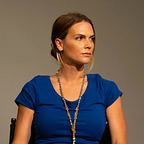The Importance of Collaboration + Iterative Design in Branding
The old agency mentality to branding looks something like this:
“Let’s have a kickoff meeting, and in 2 months we’ll present you with some options for logos and taglines … don’t worry, you’ll get a round of revisions if you’re not happy.”
This automated, assembly-line approach to branding is commoditizing an incredibly personal process for a critical business decision, and is at best ineffective.
We start by working only with passionate people who share our commitment to finding a true and sustainable promise of value for the brand. This requires deep questioning, an open mind and a willingness to ditch ideas that aren’t serving the bigger picture. We perform a full audit of all that’s at stake — market, customers, competitors, growth and then, through a series of collaborative exercises with our client, we develop a few conceptual directions for the brand idea. Brand ideation can come from many different places — a key competitive differentiator, inspiration from aspirational brands in other verticals, an epiphany in the middle of the night. We know that it’s what you do with that initial idea that will build a sustainable brand, not the idea itself. So we put the idea through its paces.
We push each idea to its limits, then push it in the other direction. We kick the tires. We learn from each roadblock and find smart ways to adapt the plan to suit reality. We ask our clients a lot of “what if …?” questions and to think about where they want the brand to be in the future. The result is a solid brand framework that will evolve with your business and the shifting marketplace, making it smart, agile and adaptable. It’s also one that gets you excited, because it defines who you are and supports where you want to be going.
This type of knowledge sharing, broken idea trashing, leave your ego at the door working relationship is absolutely paramount to creating a brand that is brilliant. There are no shortcuts, there is no room to hold onto ideas that aren’t working — only a mutual dedication to creating something epic and not being afraid to ditch what isn’t working.
Originally published at backroom.io on March 26, 2015.
